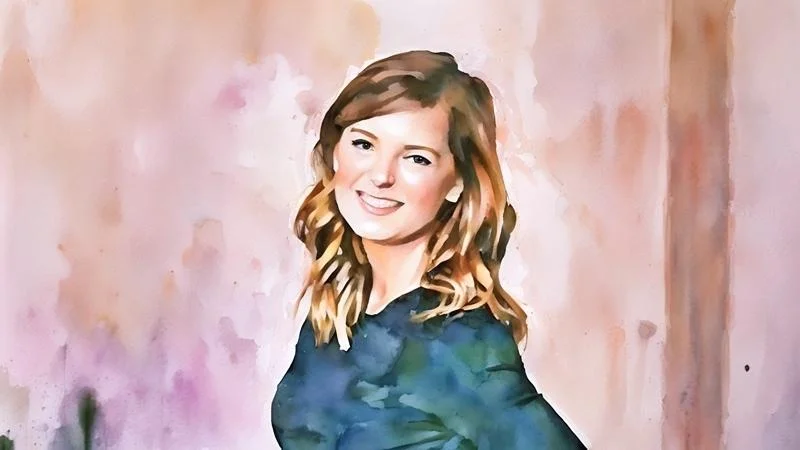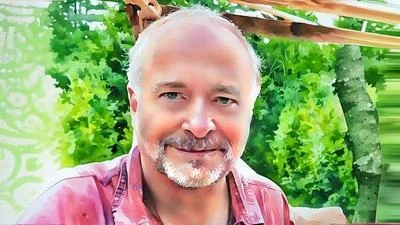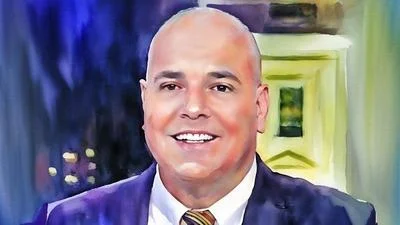Chelsea Sobolik, director of government relations at World Relief, brings a deeply personal lens to the plight of Ukraine’s abducted children.
Adopted from Romania as a baby and raised in North Carolina, Sobolik has been immersed in international child welfare. With four siblings adopted from Russia and a cousin from Ukraine, her connection to Eastern Europe is more than political—it’s familial.
Sobolik previously served on Capitol Hill and with Lifeline Children’s Services, the nation’s largest evangelical adoption agency. Her advocacy centers on the thousands of Ukrainian children forcibly taken by Russia amid war.
“I care very much about vulnerable children,” she says. That care has translated into a long-standing career working on adoption and child welfare policy, both domestically and abroad. “When I worked in Congress, my boss at the time led the largest bipartisan, bicameral caucus, which is the adoption caucus. We got to dive deep into legislation for vulnerable children.”
Russia’s invasion of Ukraine in 2022 marked a turning point. “That’s where I was working at the time,” she says of her role at Lifeline, “and got wind of this issue of Russia abducting and stealing Ukraine’s children.” Since then, she’s continued the work at World Relief, where she now leads policy efforts on the issue.
Sobolik explains that prior to the war, Ukraine had ongoing international adoptions, especially for harder-to-place children like older youth or sibling groups. Since the invasion, however, “adoption has basically been paused.” The pause, she clarifies, is in part to ensure safeguards are in place to prevent trafficking and verify orphan status. “International laws protect children during times of conflict,” she says.
The scope of the crisis is staggering. “Russia has stolen almost 20,000 children from Ukraine,” Sobolik states. Initially sent to so-called summer camps, the reality became much darker. “Children weren’t able to call home, they weren’t able to go home,” she says. The camps evolved into military training centers and political reeducation hubs where children were subjected to Russian propaganda and, in some cases, forced adoption.
“They were being physically abused, not given enough nutrition,” Sobolik says. She also claims the children are being placed into forced foster homes. “It’s incredibly illegal,” she says. Even more alarming, according to Sobolik, is that “Russia has intentionally targeted the weakest of the children… those who didn’t have parents, and children with disabilities.”
Sobolik’s coalition recently sent a letter to President Trump and Secretary of State Rubio, calling for the return of the children to be a “precondition to peace agreements.” The language is intentional. “Children should not be a bargaining chip in peace talks or in negotiations,” she says. “Children should be returned home before those peace talks are ever continued further.”
She is encouraged that President Trump raised the issue with Ukrainian President Zelensky and that both chambers of Congress have shown bipartisan concern—particularly over the potential deletion of a Yale University database tracking abducted children. “Congress sent a bipartisan, bicameral letter to the administration,” she says. The termination of the Yale project was rescinded, and the data is now being transferred to Europol. “I’m very grateful… it looks like the database has been preserved.”
However, not all recent developments are hopeful. Sobolik points to recent reports that a former children’s camp in occupied Mariupol is being transformed into a military training center. “I have images of children as young as 10 or 12 holding machine guns,” she says. “We’ve seen this is not just Putin’s priority. This is being executed on every level of the Russian state.”
In the face of atrocities, Sobolik urges continued American leadership. “If we are at an inflection point,” she says of the current state of negotiations, “children aren’t pushed to the side to get a deal.” She’s not just directing that message to the White House. She applauds the members of Congress who have taken action even when it’s not politically expedient. “These are not their constituents—they do it because it’s the right thing to do.”
Sobolik also stresses the importance of U.S. humanitarian protections for those fleeing religious persecution or violence, including Ukrainians. “When we’re at our best, [the U.S.] offers humanitarian protections to those who cannot safely return home,” she says. “I hope we will continue to offer that protection, especially for women and children.”
Her advocacy is personal. “I found out as a teenager I was born with a medical condition that prevents me from having biological children,” she says. “We welcomed our son home through international adoption a year and a half ago.” It’s why she refuses to let the world forget Ukraine’s stolen children.









